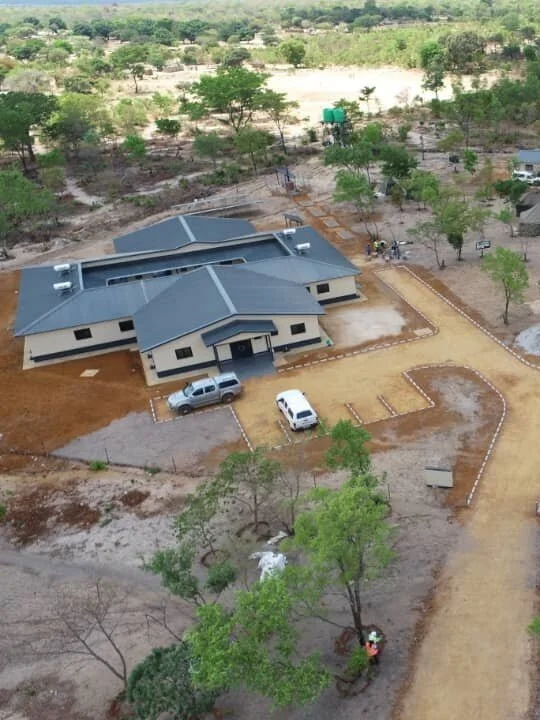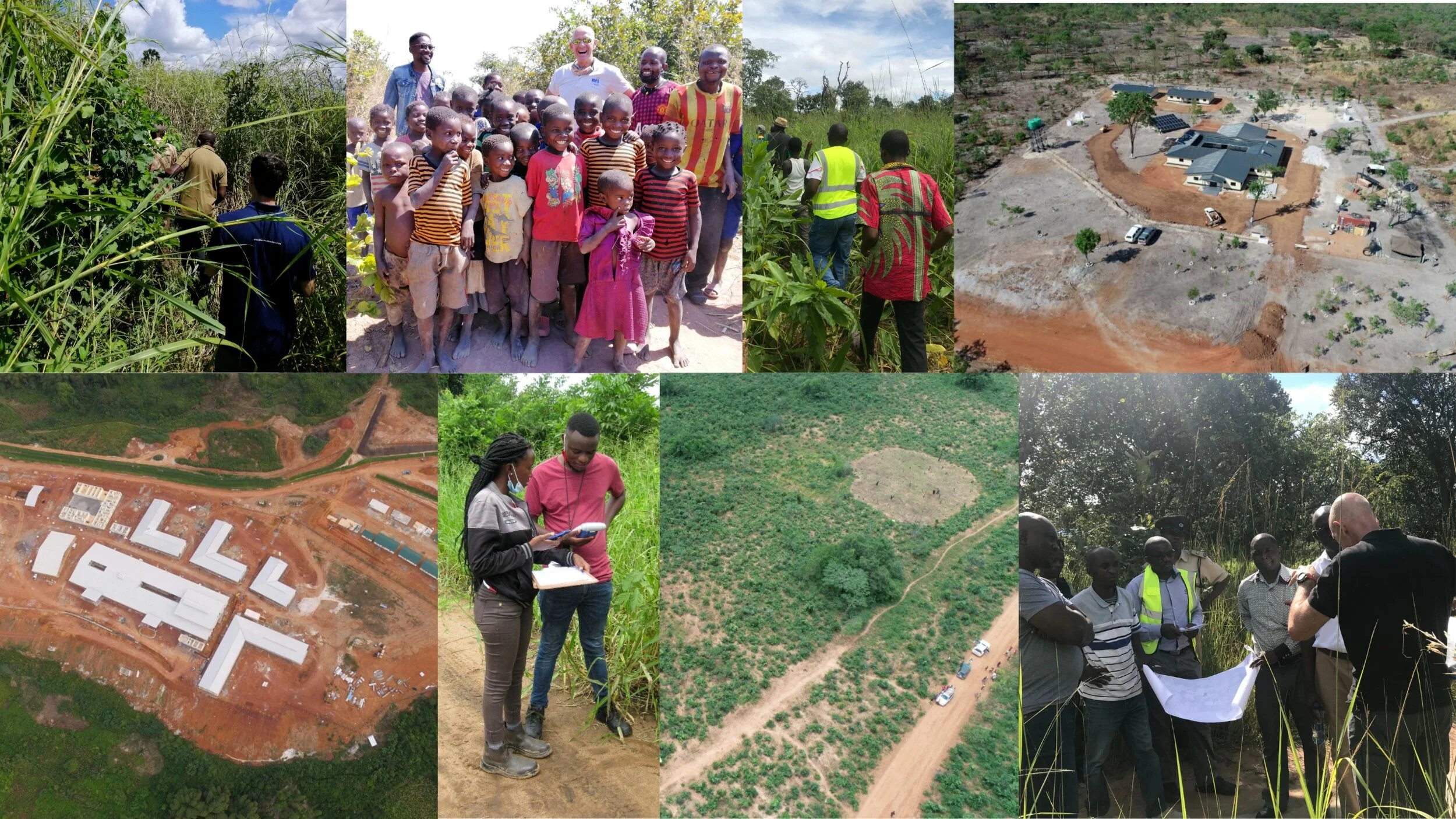Overview
NMSI is determined to play a leadership role to drive sustainability in the markets and societies where it operates. We believe in delivering projects which catalyse sustainable development, with all involved taking pride in their contribution to this legacy.
Each NMSI facility is designed and built with the aim of reducing its environmental impact. We are committed to working towards resource efficient and low carbon buildings in line with the International Finance Corporation’s EDGE system for green buildings in emerging markets.
The social impact of our work is inherent to the social infrastructure projects we deliver, and enhanced by the way we deliver them. Projects delivering healthcare, education, agricultural, energy and water infrastructure have tangible and wide-ranging benefits for human wellbeing. NMSI’s delivery strategy supports the local ecosystem for the built environment sector, providing local employment and the exchange of local and international best practice approaches to project development and delivery.
NMSI employs a dedicated in-house team of chartered environmental and sustainability professionals with decades of experience working with private and public sector partners, funders and sector-specific expertise to deliver positive project impact outcomes.
The NMSI Leadership Team believe that strong governance is essential to sustainable business success. Governance of sustainability performance is defined in our Environmental & Sustainability and Health & Safety Policies. NMSI also believe that leadership means going beyond minimum requirements, instead seeking and communicating continuous improvement, so we produce an annual ESG Report, which sets out our approach and impact across areas ranging from carbon and nature to local employment and internal governance.
Project E&S Management
On each of our projects, commitment to sustainable business means delivery through a robust environment and social management system. NMSI is committed as a matter of internal policy to delivering projects in accordance with the IFC Performance Standards, associated World Bank Environmental, Health & Safety Guidelines, and the Equator Principles . These frameworks represent international best practice in the management of environmental and social project impacts, and are implemented alongside coordination with local regulatory authorities to deliver context appropriate impact management.
Environmental and social impact management is embedded across the project life cycle:
- … from the development of project briefs and project Screening and Scoping …
- … through Environmental & Social Impact Assessment (ESIA) and design …
- … to construction and operational management and end-user training.
NMSI’s in-house team have successfully delivered this process on over 100 sites across Western, Eastern, and Southern Africa and beyond.
As part of our commitment to management of E&S impacts on projects, Health, Safety & Environmental (HSE) systems and oversight are critical to successful project delivery. The health, safety and welfare of staff at work is of paramount importance to NMSI, not just for its own staff but for those of its delivery partners and sub-contractors too. This importance is formalised through a dedicated company policy, and communicated through the NMSI Group HSE maxim which runs through all our projects: Our Safety, Our Planet, Our Responsibility.
Case Study - Zambia
Direct lending to the Government of Zambia, provided by UK Export Finance, enabled NMSI to design, construct and equip 115 Mini Hospitals and five new 80-bed District Hospitals on behalf of the Zambian Ministry of Health. The Project sought to address key targets of Sustainable Development aiming to help reduce maternal and neo-natal mortality and to increase access to health services to the Zambian people.
A master Environmental & Social Project Brief and a Construction Environmental & Social Management Plan (CESMP) were prepared for all 115 Mini Hospitals, supplemented by site-specific reports for individual sites. Environmental and Social Impact Assessments (ESIAs) were prepared for each of the District Hospitals as well as a CESMP and an Operational Environmental and Social Management Plan, all compliant with local and IFC Performance Standards.
NMSI has strengthened its in-house capacity to manage environmental and social risks and the Project sites are subject to regular monitoring and reporting to UKEF, as well as if incidents arise.
Case Study - Ghana
NMSI’s Environmental and Social compliance process for the Dodowa District Hospital in Ghana exemplifies the proficiency of our environmental and social management in mitigating delivery risk. Having identified waste products in both the construction and operational phases of the hospital as a key environmental risk, NMSI teamed with a World Bank-funded waste management facility at Kpone, Tema, east of Accra.
NMSI (during the construction phase) and Ghana Health Service (during the operational phase) provided a waste disposal solution, while the facility at Tema gained significant new business. The Kpone site was run jointly with Zoomlion, a waste management company providing integrated waste management solutions from waste collection, through haulage, transfer, and sorting to recycling and disposal.
Early identification of risks and stakeholder engagement at the ESIA stage resulted in knowledge which led to the formation of an environmentally advantageous relationship.





